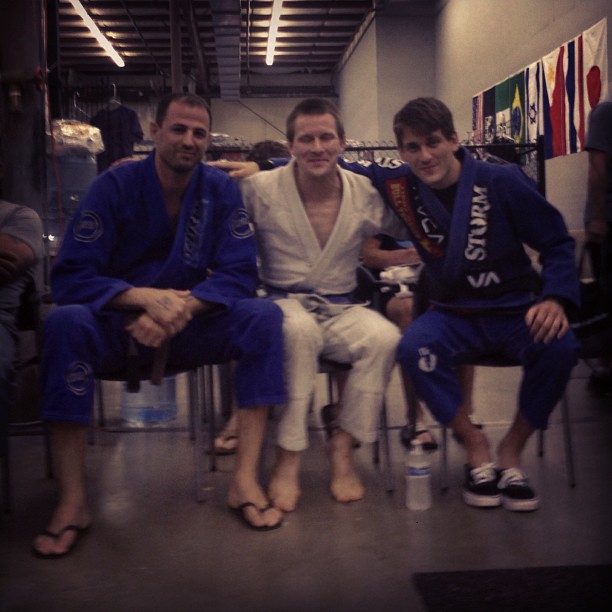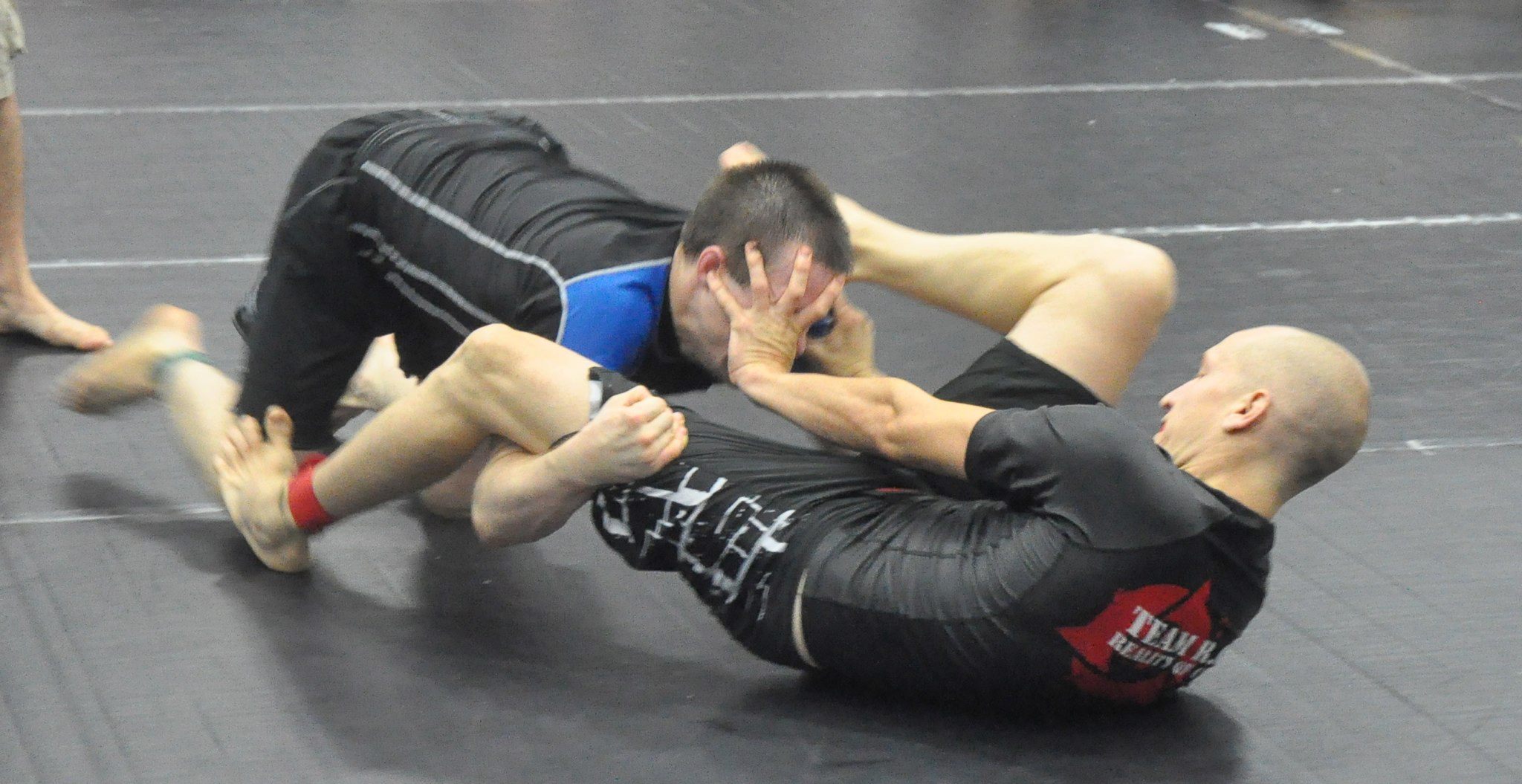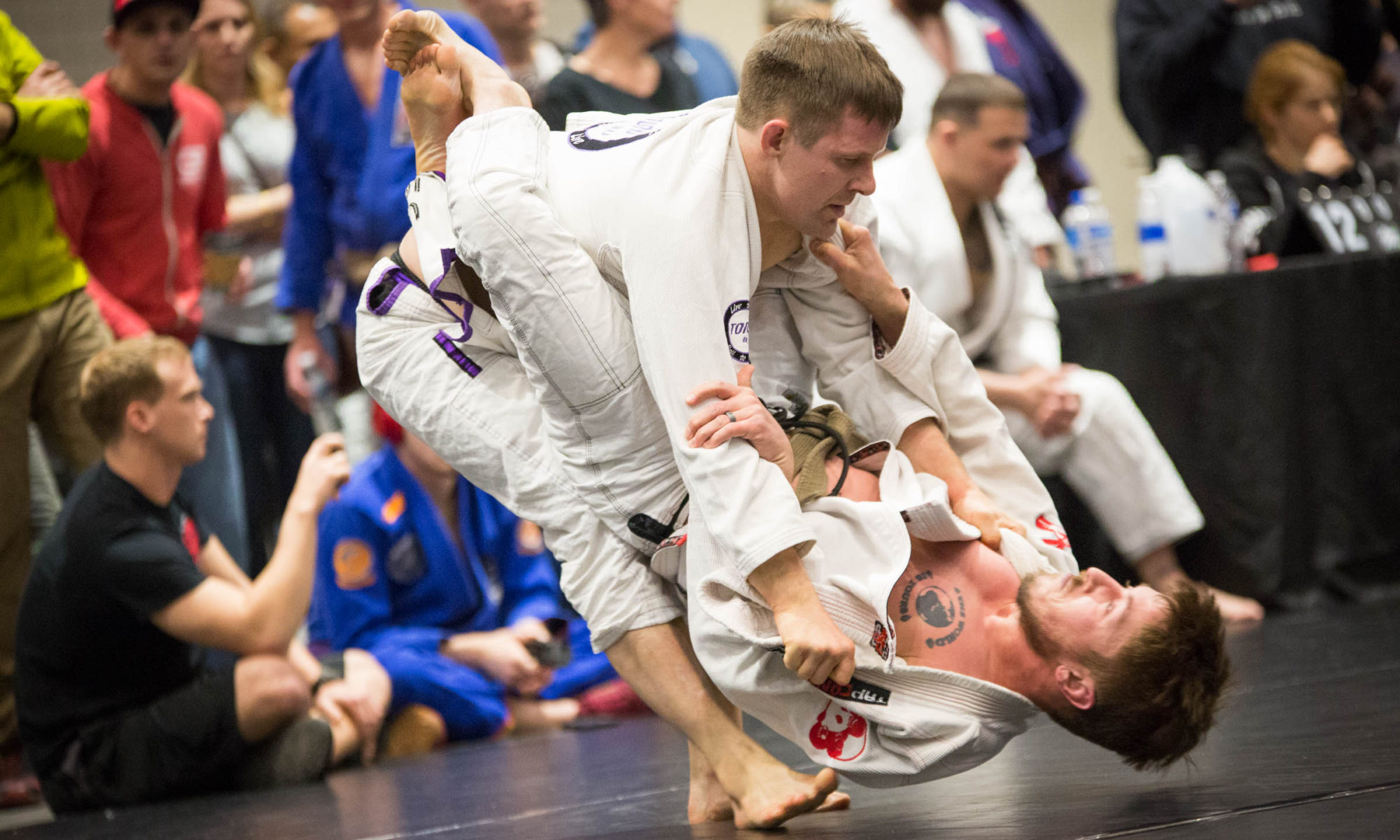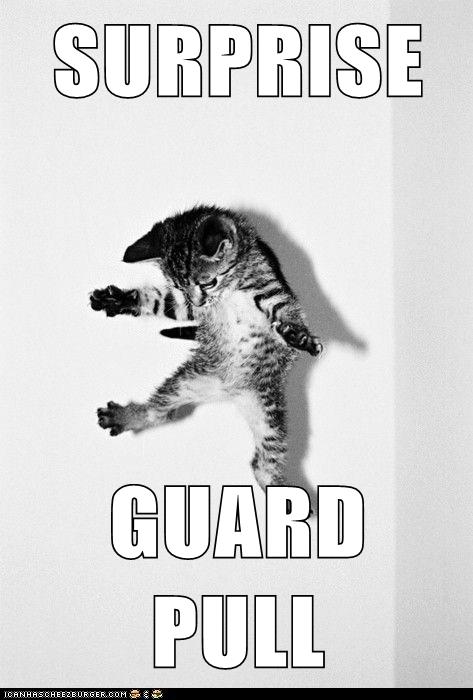When we finished up with a 6 a.m. drilling session the other day, one of my white belt training partners asked me a poignant question. “So,” he said, “when do you stop feeling incompetent at this?”
I laughed, and gave him a glib answer: “I’ll let you know when it happens to me.”
I feel like I owe him a better answer, though. This is a dedicated guy we’re talking about — not everyone gets up at 5:30 to drill with me — and honestly, everyone has felt that way. Jiu-jitsu is so complex and multifaceted that there is always some aspect of it giving you trouble.
This post is my effort to get past that flippant first-thought answer and think through five legitimate responses to that question.
1. Even The Basics Come Hard: Accept That. It took me three classes to learn to shrimp. Not shrimp perfectly. Not shrimp well. To understand the basic mechanics of one of the art’s most fundamental movements enough that I could actually do it. Seriously, that took me three classes. It took me several nights and personal attention from the instructor before I could participate in the very first warmup.

I tell this story for two reasons: first, take heart! Even if you totally brainlock on the simplest things, a little patience can get you where you want to be. Second, get some perspective. These movements are counter-intuitive. We don’t grow up moving like a shrimp does: it has to be learned. It takes some of us (like me) longer than others, and that’s fine.
2. Everything is Relative. I was fortunate enough to go to the Mundials as a white belt after training a little over a year. I hadn’t competed outside of North Carolina, and it was an incredible experience.
One remarkable aspect of watching the best in the world: you’d see a guy mow through competition with a smile on his face. You’d think that he was invincible.
Then you’d see him get schooled in the next match. Then you’d see the guy that beat him lose. And then you think again about that first guy, and how he could tap you 10 times in a five minute round without using his hands.
It’s all relative. Even now, I’ll hear an incredible instructor remark after training with someone like Royce Gracie or Gui Valente: “Wow, he really makes me feel like I don’t know jiu-jitsu.” Compared to a day-one white belt, a very good white belt can feel like a fount of information. Compared to someone who has been training 30 years since childhood, a very good black belt can feel like a white belt.

There will be days when you feel like you’re getting this. Then there will be days when you feel like me during my second class, trying to shrimp.
By now my training partner is probably saying “enough with the platitudes. Give me a number.” OK. Done stalling. I’ll give it a shot.
3. About 18 Months. Once you train for about a year and a half, you’ll feel like you have a good handle on the basics. Depending upon how much you go to class, you might earn a blue belt slightly before or slightly after this time. Again, everyone is different. Some people have natural aptitude for grappling, and you can get there faster by spending more time on the mats, taking privates, watching videos, reading books, or whatever supplemental effort is best for your learning style.
But if you go to class regularly (say, three to five times a week) and do your drilling, you’ll build a solid foundation for yourself. You’ll start to recognize mistakes other white belts are making. This will help you first stop making those mistakes yourself, and then start exploiting those mistakes.
This is a really fun and exciting time in your development, and I think you’ll really enjoy it. I had an absolute blast when this happened for me, and it happened probably around the 18 month mark. That’s the good news.
Yes, there’s bad news.
4. … And Then You’ll Start Feeling Incompetent Again. Right after I got my blue belt, I felt euphoric. And so should you when you level up! It’s the result of a lot of work, sacrifice and effort, and you should be proud of it.
And then you should forget about what belt you have on and get right back to training. Because after you’ve had that belt a year, you’ll look back and can’t believe how little that dude who got that belt knew.
Everyone is making progress all the time. Other people — your training partners, your opponents — are getting better. You’ll feel good about where you’re at, but the rising tide means you’ve got to keep learning or get left behind.

That’s a beautiful thing, though! If you get good at the triangle choke, let’s say, your partners must adapt. Eventually, they will stop you from triangling them. Then, you’ll be forced to either figure out new setups or use a different technique. This, in turn, forces you to learn and improve.
The down side to this is that you end up feeling like a doofus. But that’s why the wise jiu-jiteiros tell the new guys that it’s important to keep the ego in check.
The art will do that for you, don’t worry. Last weekend I had perhaps the best tournament I’ve ever had. This week I got back and trained with some guys so good, they thwarted everything I was doing and submitted me multiple times without breathing hard. It’s inspiring, and humbling, to roll with people whose technique is at the level where it makes you feel utterly ineffectual and incompetent.
This brings us back to:
5. I’ll Let You Know When It Happens. Sorry, man, we’re back to the beginning.
Maybe, as the Buddhist meditation master Chogyam Trungpa Rinpoche told Allen Ginsberg, the first thought really is the best thought. Or maybe jiu-jitsu is just so rich and complicated that I’m always going to feel like a novice.
If you saw me try to shrimp, you’d probably bet on the latter, and I probably would too.
That’s the thing, though: ultimately, you’re competing against yourself. The you of today is no doubt miles more competent than the day one version. And you’re only getting better.
There will always be people that make you feel like you have no technique compared to them. But when I think back on the version of myself that walked into the gym about three years ago, I have no doubt that I would tune him up without him even realizing what I was doing.
We all feel lost sometimes. Part of why jiu-jitsu is so interesting is that there will always be more of it to understand. Embrace that, and enjoy the ride.

